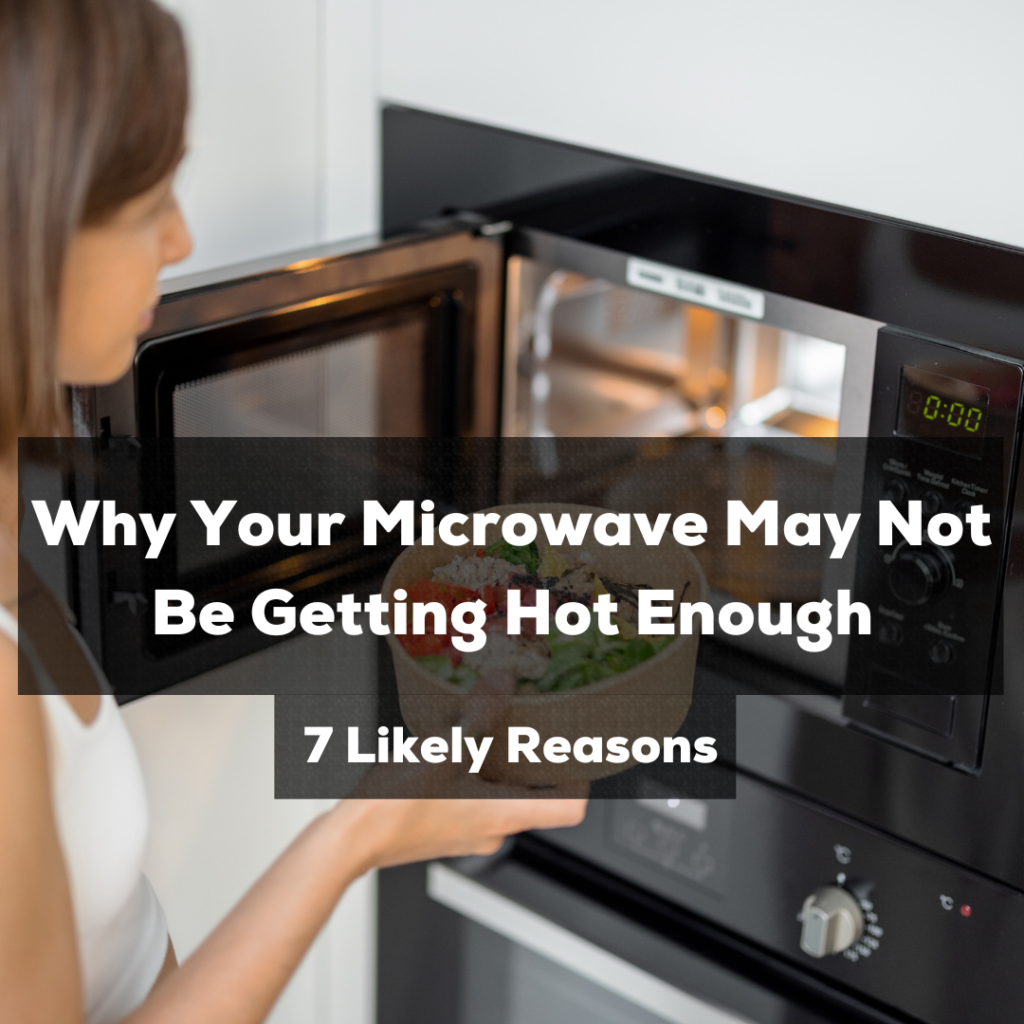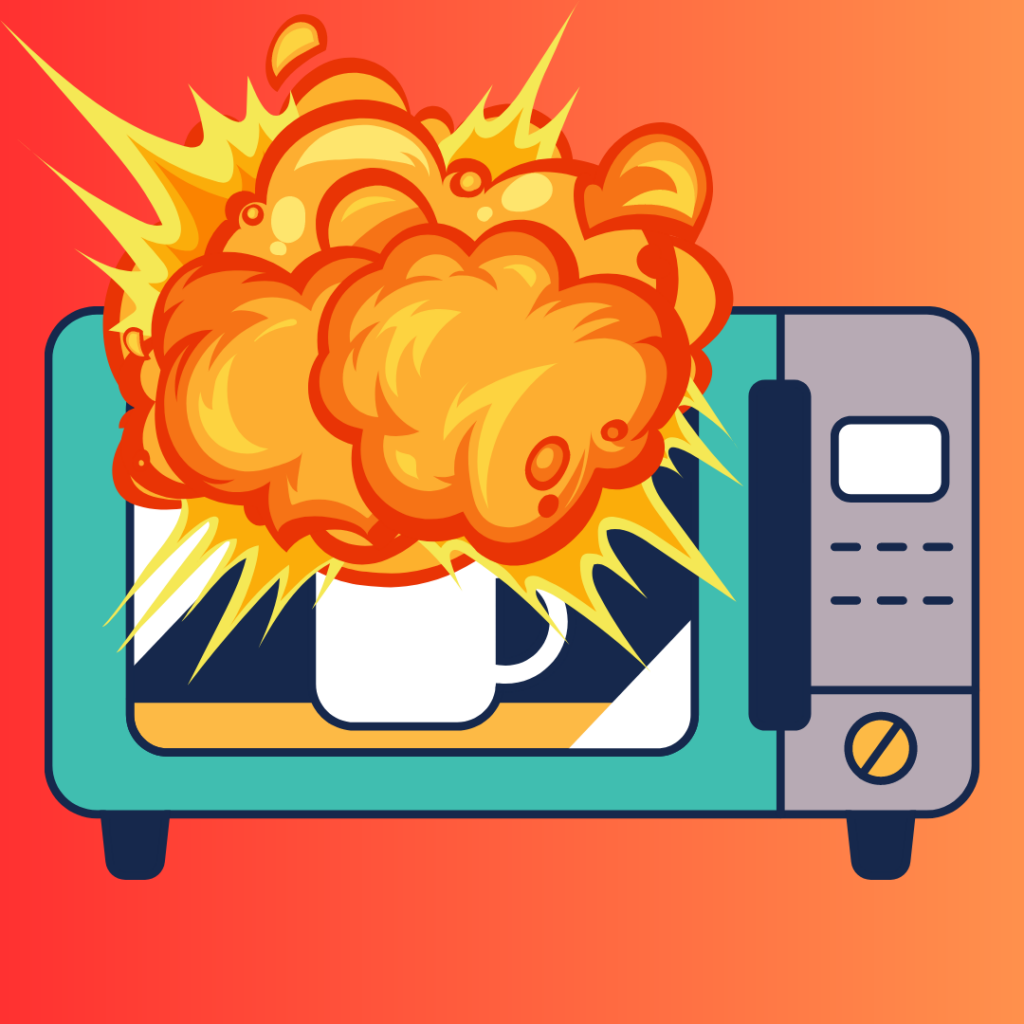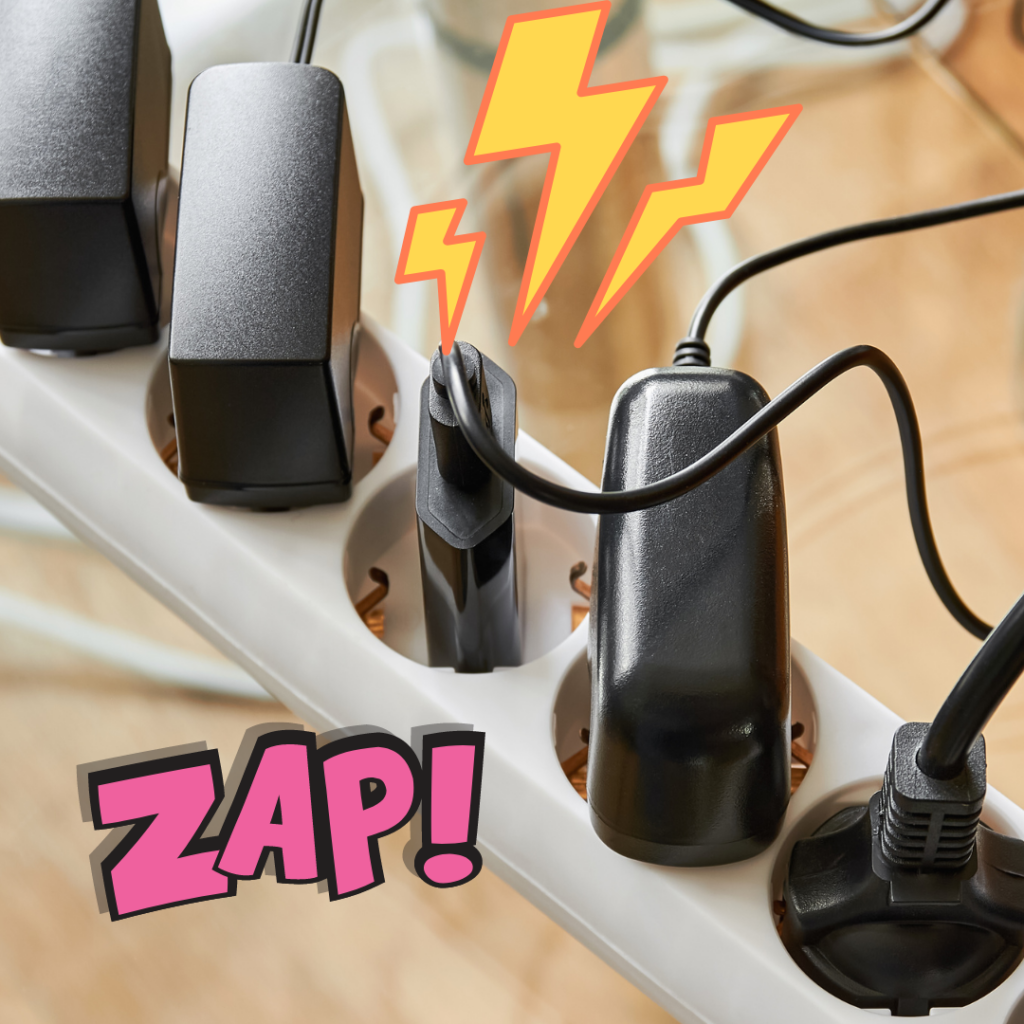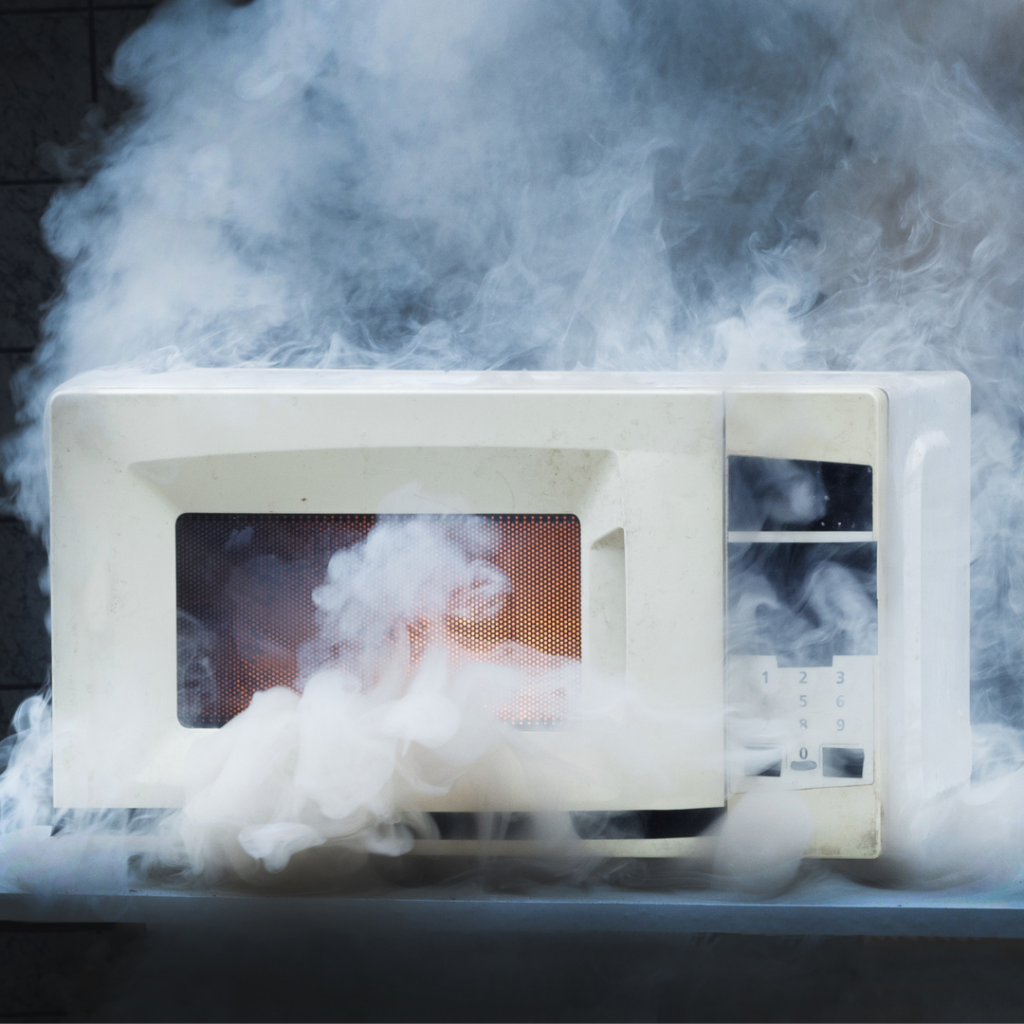Why Your Microwave May Not Be Getting Hot Enough (7 Likely Reasons)
You are preparing a meal in the microwave, and it’s taking longer to cook than usual. Before you assume your appliance is broken, there are some important checks that you can make that can point to why your microwave may not be getting hot enough.
Your microwave may not be heating correctly due to any of the following reasons:
- Inappropriate cookware
- Selected the incorrect power level
- Low-power appliance
- Other appliances are drawing too much power
- The type of food, temperature, or portion size doesn’t match the recipe
- Air vents are blocked
- Faulty microwave
Read on below to learn more about each of these 7 possible causes of your microwave’s failure to heat up properly.

Signs that your microwave is heating slowly
It’s not hard to notice when your microwave isn’t properly heating your food. The following reasons may be a sign that your microwave is malfunctioning:
- The cooking time is longer than usual or what is specified in the recipe.
- Food is lukewarm or just warm instead of hot after the cooking time has elapsed.
- The microwave-safe container is lukewarm or cold to the touch instead of hot.
If you notice any of these tell-tale signs, then your microwave could be operating at a sub-optimal setting. You’ll want to check the reasons we lay out in this article to find the cause of your microwave malfunction. Ultimately, you may have to purchase a new microwave if you are unable to resolve the issue.
7 reasons why Your microwave may not be getting hot enough
Is your microwave not heating up? If so, it might be because of one of the several factors listed below:
Inappropriate cookware
Some type of cookware, like stoneware, absorbs or blocks microwave energy instead of letting it get to the food to cook it. Because there is less or no energy reaching the food, it will cook slowly or not cook at all.
Before you stick something in the microwave, make sure it’s both microwave-safe and it’s designed to heat up when exposed to microwave radiation. If not, your food may come out cold or lukewarm. If your microwave is not heating, this is the first thing to check!

Incorrect power level
The next thing you should check if you find your microwave not heating up but runs, is to look at the power level. The higher the power level selected on the microwave, the faster the microwave cooks.
If your microwave is cooking slowly, check that the microwave’s power level is not set lower than usual, i.e. set to medium or lower.
If you notice the power level is set to high, and your food still isn’t getting hot, you may want to consider some other solutions. One thing you can do is remember to stir and turn over the food at least mid-way through the cooking time so that the food is evenly cooked.
Low-power appliance
A microwave with a low cooking power, say 500 watts, will take much longer to heat food than one with a higher-rated cooking power.
Make sure you check the technical details of your microwave before considering it broken. It may just be that you’re using a low-power appliance and expecting it to cook with high-powered efficiency.
Other appliances are drawing too much power
If your microwave is not heating but the timer is working, along with the rest of the electronics, you might be plugged into an overloaded circuit. If the microwave is installed on a shared circuit with other appliances that draw a lot of power, there will be less available power heading to the microwave when the other appliance is switched on, which could be slowing down the cooking time.
If you suspect this could be the issue, try unplugging the microwave (if it’s a countertop appliance) and plug it into another outlet. If your food heats up more quickly, then this could have been the issue.

The type of food, temperature, or portion size doesn’t match the recipe
If your food appears to be taking longer to cook than your recipe prescribes, it could be that you failed to follow the directions carefully. Before considering your microwave to be faulty, check that the size of your portion is correct – larger portions of food will cook longer.
You’ll also want to consider that colder or frozen food cooks longer than food at room temperature. You also want to make sure that you’re using the correct ingredients. Some ingredients will be more susceptible to microwave radiation than others.
Air vents are blocked
If the airflow around the appliance is restricted, your microwave may not work properly. You need to make sure to allow for proper clearance around the microwave to allow the hot air to vent out of the sides, top, or bottom of the machine.
If you don’t, your microwave could overheat and fail to properly warm your food. For example, if the microwave is installed in a closed space, then the heat buildup in the magnetron will force it to shut down and stop the cooking process.
The magnetron converts electrical energy to microwave energy. The microwave can resume once the magnetron has cooled down. Always make sure to read the installation instructions on your microwave to make sure you aren’t blocking the air vents.
Faulty microwave
If you’ve tested all of these possible causes and still can’t find the source of the malfunction, you may have a faulty microwave. There could be a shortage in the fuse that connects your appliance to the power source, or there could be some kind of leakage.
Contact the supplier if the appliance is still under warranty or a qualified repair technician to get it fixed. In some cases, it might be more pragmatic to simply purchase a new microwave.

How you can shorten the cooking time if your microwave is slow to heat
If the food you are preparing is taking a long time to cook, there might be a few ways you can possibly speed up the cooking process.
- Adding some water to the food being cooked can speed up the cooking process.
- Cooking smaller portions of food can also speed up the cooking process.
- Thaw the food beforehand to speed up the cooking process. Frozen food takes longer to cook than thawed food.
Stir or turn over the food mid-way during the cooking so that all areas of the food are cooked; otherwise, some parts might be cooked while others are not
Tips to fix a microwave that is not getting hot enough
If the microwave is still not hot enough, Be sure to use only microwave-safe cups, plates, or dishes when cooking food in the microwave. These are often made with translucent material to ensure the microwaves actually heat the food inside.
You can also check that the appropriate power level for the microwave has been selected. Microwaves will usually have multiple power levels, with the highest generating the most power. Check the microwave user manual on how to increase the power level of the microwave.
You’ll also want to make sure the microwave oven is properly installed. Make sure there is enough clearance around and above the microwave as required. This allows it to cool and cook consistently.
You may need to connect the microwave to a dedicated circuit if it appears to cook slowly when other appliances are switched on.
Final thoughts
There are several reasons why the microwave may be heating slower than usual.
These range from using the wrong cookware, cooking large portions of food, frozen vs. thawed food, lower power levels, poor ventilation of the microwave, and possibly a faulty microwave.
It is important to check through the possible causes first before you pay for maintenance!
How to repair microwave oven not heating
If you find your microwave isn’t heating but that it still runs, you’ll need to discover the cause of this phenomenon. Once you discover the cause, you can address the issue accurately.
My microwave is not heating enough
If you find your microwave isn’t heating enough, it may be due to the following factors:
– Inappropriate cookware
– Selected the incorrect power level
– Low-power appliance
– Other appliances are drawing too much power
– The type of food, temperature, or portion size doesn’t match the recipe
– Air vents are blocked
– Faulty microwave
Let Us Know How We’re Doing!
Did this expertly prepared resource answer your question?
Do you have another question about home maintenance, home improvement projects, home appliance repair, or something else?
Get more information, send in questions and keep the discussion going by contacting the I’ll Just Fix It Myself company customer service team at at 1-800-928-1490 or Email us at [email protected]
